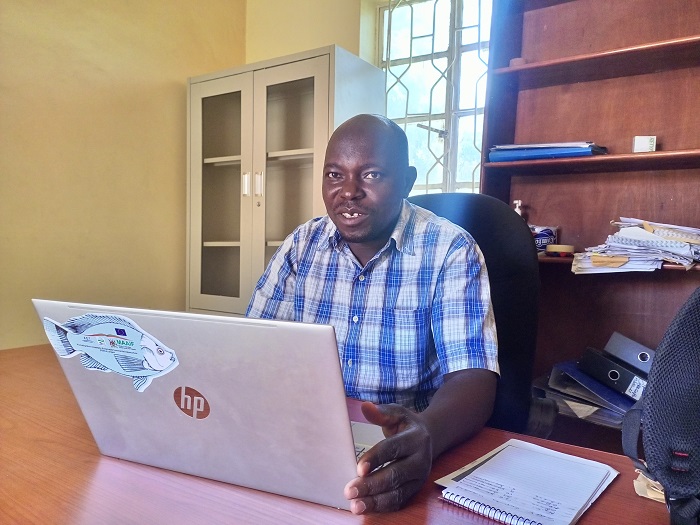LIRA, September 14, 2023 – The beneficiaries of the Parish Development [PDM] in Lira district have been warned against diverting the funds meant to help poor households engage in commercial farming.
The call was made early this week by Thomas Okello, head of Lira district production department, as he engaged journalists in a brief interview at his office.
The PDM, launched in February 2022, is a government initiative intended to improve household incomes for 3.5 million poor households that the government wants to push to the money economy in the next five years beginning with the financial year 2022/2023.
Okello while talking to the reporters, argued that if the farmers put PDM funds to good use, they would achieve better results by way of improving their livelihoods.
“We continue to give PDM funds to our farmers, but we are requesting the farmers to use the funds according to their business plans. They should use the funds strictly for agricultural production, and not for other things so that they chase away poverty from their homes,” Okello said.
He also threatened to arrest those who divert PDM funds to other activities such as marrying more wives, drinking alcohol, and holding parties among others.
“There are others when they get this money, they will run to marriage, I don’t want to hear that, those ones we shall send people to arrest them,” he said.
Brenda Abalo, a beneficiary from Abunga village in Bar Sub-county who is growing maize on a seven-acre farm concurred with Okello’s warning, saying it will be hard for beneficiaries to pay back the PDM funds if they misuse it.
“At the moment, there are some people who are already misusing the money, drunkards, they are just drinking the money, and yet this money we have got is a loan that must be paid back,” she said.
Meanwhile, Susan Akullo, a resident of Apua village, Lira district, and member of Note Enteko PDM Group said she bought 10 kilogrammes of maize using the PDM money, with some money being paid to labourers helping with the planting this second season.
However, Akullo said each of the poor household needs about Shs 2 million to be able to carry on meaningful business. Currently, under the PDM, each beneficiary household gets Shs 1mln.
“I so much wanted to grow maize on a larger scale. I am now requesting that government should give us more money if we pay back the Shs 1mln,” Akullo said.
Meanwhile, Michael Okello, the Lira district PDM focal point person said many farmers are interested in being given the PDM money although he said it is not enough.
“The money is not even enough. People are very many and not all of them will benefit this money because it is not enough. However, our teams are working tirelessly to ensure that the farmers get all the money before the planting season ends. We want to catch up with the rain, especially for our farmers who have chosen crop enterprises like maize, soybeans, beans, and ground nuts among others,” he said
Okello said the extension workers are also on the ground to file the list of beneficiaries who could have misused the PDM money.
“We have tasked our extension workers on ground to find those beneficiaries misusing the money so that the law can deal with them,” Okello said.
At the moment Shs 2.4 billion has been given out to 2417 beneficiaries while 908 beneficiaries are in the pipeline to receive the money since their vouchers have been approved.
Meanwhile Lira District has a total of 58 parishes with more than 7,000 people. Under the PDM each of the 10,594 parishes in Uganda is supposed to receive Shs 100mln every year for enterprise groups.
The government in the last financial year 2022/ 2023 as well as the current financial year 2023 /2024 earmarked over Shs 1bln for the PDM, even though reports from across the country indicate that some officials handling the programme have abused it through corruption.
The parishes are getting the money under the Financial Inclusion Pillar of the PDM. The overarching role of the PDM is to increase household incomes and improve the quality of life of Ugandans with a specific focus on the total transformation of the subsistence households into the money economy, as well as eradication of poverty and vulnerability in Uganda.
Key frameworks to which the Financial Inclusion Pillar is aligned include the National Microfinance Policy, the National Cooperative Policy 2011, the National Payment Systems Policy, the National Financial Inclusion Strategy [NFIS 2017-2022], the Strategy for Financial Literacy, and the Private Sector Development Strategy [2017].
https://thecooperator.news/pm-nabbanja-warns-against-misuse-of-pdm-funds/
Buy your copy of thecooperator magazine from one of our country-wide vending points or an e-copy on emag.thecooperator.news
